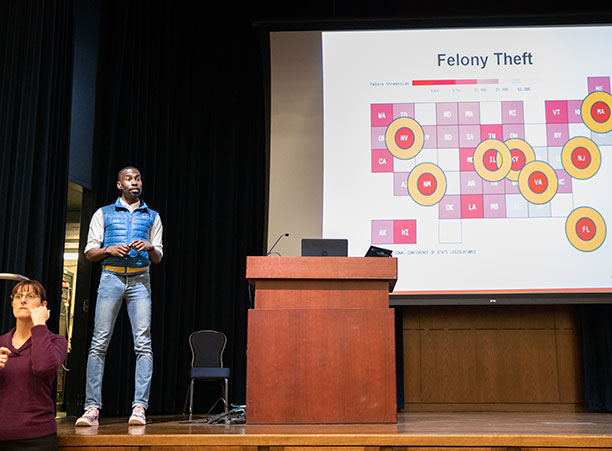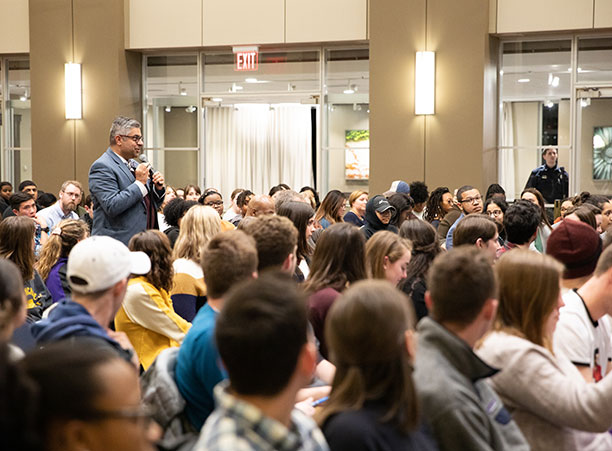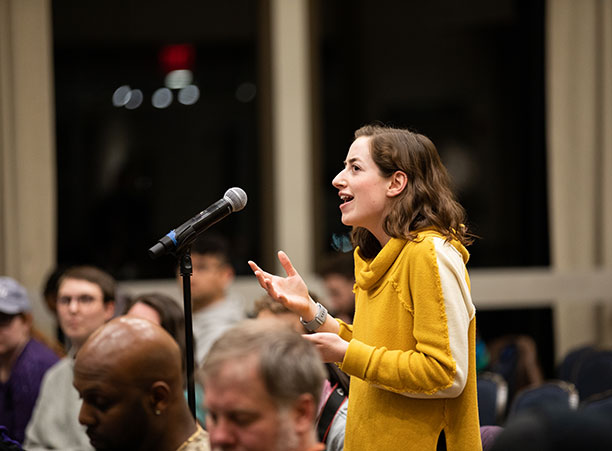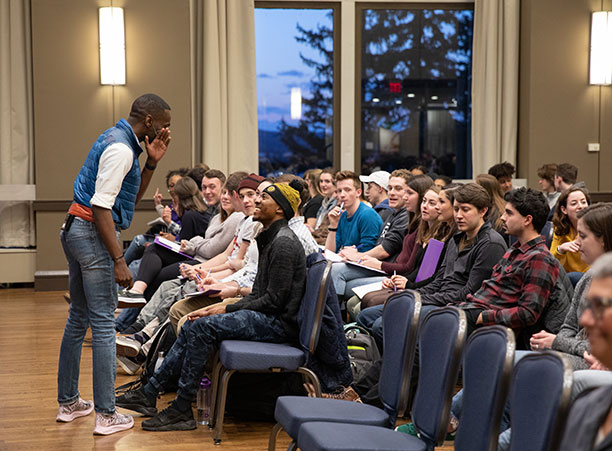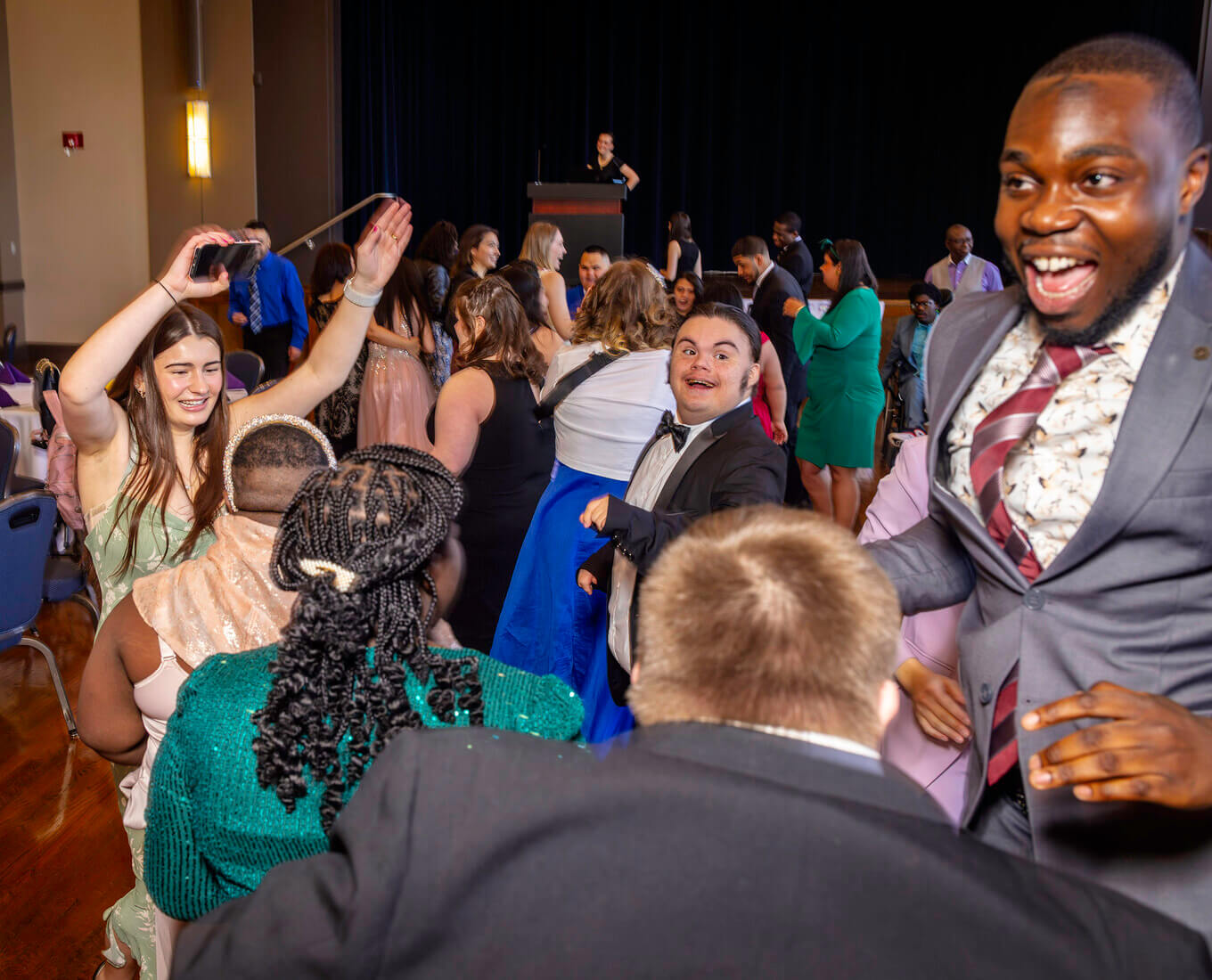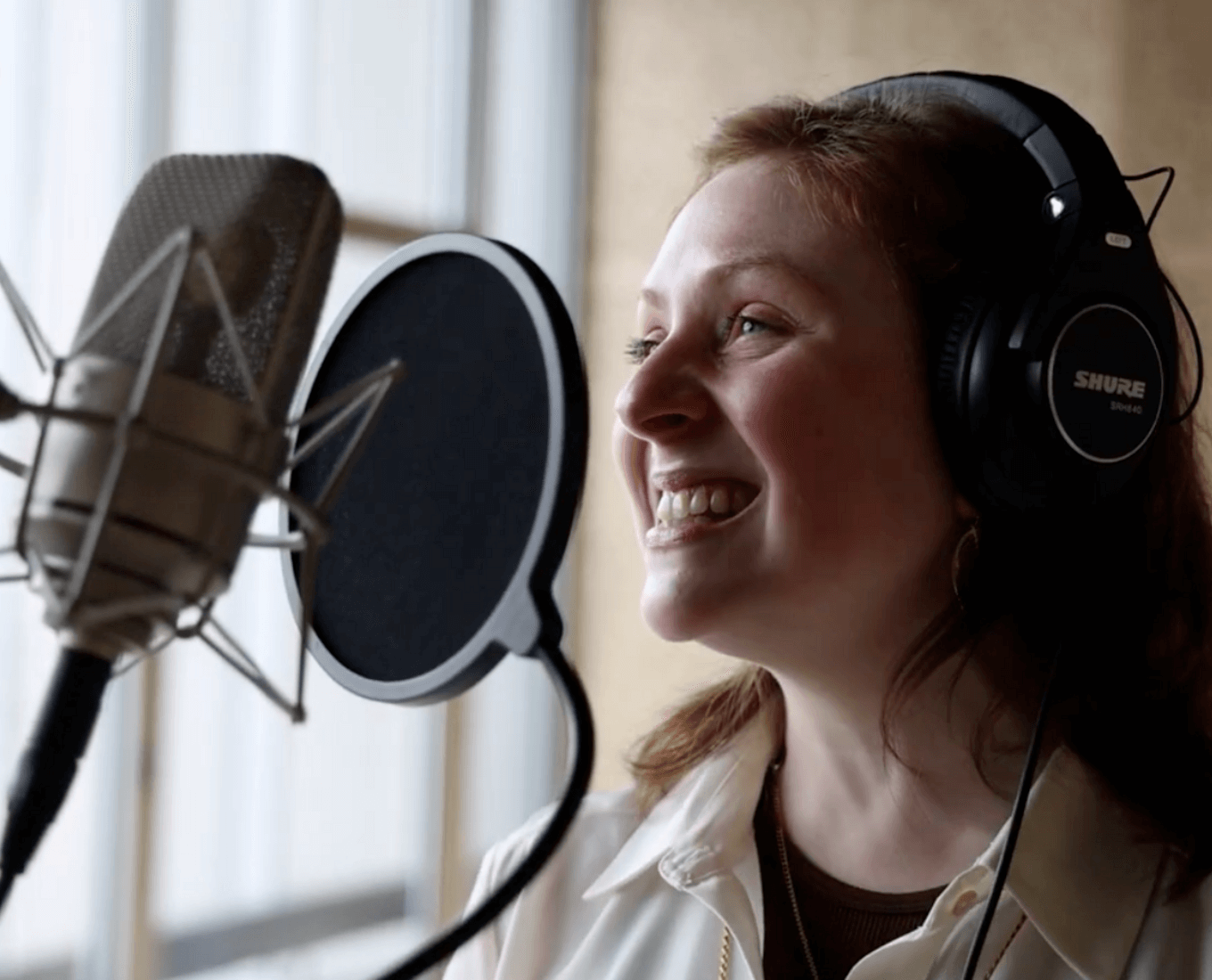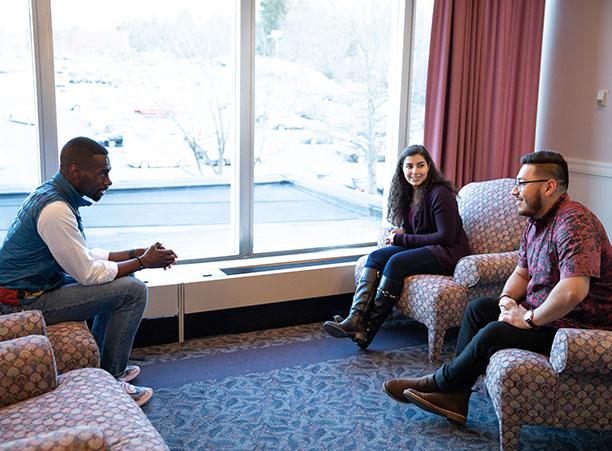
For this year's annual Unity Week, the two student chairs — Co-Officers of Diversity for the Student Government Association Mithra Salmassi '19 and Manuel "Manny" Trejo '19 — wanted to honor intersectionality while leaving space for exploration and introspection. So together, they planned a full week celebrating diversity at Holy Cross, highlighted by a rousing talk by DeRay McKesson, civil rights activist and leading voice in the Black Lives Matter movement.
"Our overarching theme for this semester as co-officers of diversity is civic engagement and change in action," says Salmassi, an English and psychology major with a concentration in gender, sexuality and women's studies. "I think we can all agree that this year has been a really formative one at Holy Cross, thanks in no small part to the actions of our student body. We hope Unity Week and our year-long celebration of intersectionality and individuality will allow for deeper critical thinking about how different identities, particularly those that are marginalized, can be upheld."
Now in its 19th year, Unity Week is a celebration of diversity at Holy Cross and brings the community together through a series of events and various programming with a challenge to think critically.
To bring a diverse range of issues to life — and to action — students, faculty and staff had the chance to learn about the history of medical and environmental racism in the Unites States; the Asian-American experience; feminism; colorism in Asia; and being a first-generation college student, among other topics.
While campus issues are always at the head of the table for students, Trejo, a philosophy major, wanted to be sure other national issues didn't fall to the wayside. "There are a lot of greater issues that are going on in our country that also need to be highlighted," he said. "That's a big reason we chose DeRay to come speak."
McKesson's full-time career as an activist was sparked by the 2014 murder of 18-year-old Michael Brown in Ferguson, Missouri. When McKesson heard the news, he drove down to Ferguson, quit his job as a math teacher in Baltimore and marched for months. Since then, he's been at the forefront of working to confront the structures and policies that have led to mass incarceration and police killings of black and other minority populations.
For Trejo, Unity Week is about "standing up with one another and being involved in that civic engagement and the change in action."
During McKesson's interactive discussion, held in the Hogan Ballroom, he talked about the inequalities of the American criminal justice system, tying in his own experience of marching — literally — on the frontlines of the Black Lives Matter movement. He often called upon audience members to help him read important facts out loud, or asked them to yell out their own ideas on a topic. One of his points spoke directly to Salmassi and Trejo's mission for the week: making more people aware of civic issues.
"As organizers, we're always interested in creating entrances and on-ramps. How do you get people into this space? I think about my Aunt — I try to deliver a message to her. Not because she's uninformed, but because she's busy. I have to figure out how to talk to her about these things. Part of our work is not to be so arrogant to believe that the only way to enter is the way that we entered. However you enter into this space is okay, because we know that if we get you in this space, then we can move you around within it."
Through a question and answer session, members of both the Holy Cross and greater Worcester communities had a chance to speak to McKesson directly. One student asked how to sustain momentum around an issue after hosting a large, successful event, like a protest.
"The big flashy stuff is often to get attention, and that's what it's supposed to do, right?" McKesson asked. "That's the natural evolution — you fight for attention on an issue because they weren't listening another way, and then you try the other thing. You try the emails, the phone calls."
McKesson went on to say that the more important work comes later.
"The grind after the big thing is showing up to all the meetings — somebody has to keep doing that."
Taking a note from McKesson, Salmassi and Trejo made sure to reiterate that Unity Week is less of a week and more of a guide to keeping the conversation going.
"Unity is not just condensed to this week; we don't just come together to look at diversity, then go our separate ways," Salmassi says. "This year has demonstrated that every day should be about that, especially with DeRay's talk. I hope people come away thinking, 'I'm happy I got a chance to stand with people and my identity. What's next?' We just want to keep pushing that question: 'What's next?'"
Student Organizers Challenge Campus to Critically Explore Issues of Diversity During Unity Week
Civil rights activist DeRay McKesson leads discussion about getting involved and staying active
Read Time
4 Minutes
